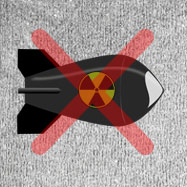Trump’s Own “Star Wars” The 2019 US BMD Review and What It Augurs for India?
The Trump administration’s BMDR, released in early 2019, can be described as the most proactive BMD plan since the SDI days with fillip given to areas like directed-energy, addressing gaps in boost-phase interception and harnessing the space frontier. Besides analyzing the BMDR threadbare, this Volume uses a hitherto unexplored cache of documents to reconstruct the anatomy of the India-US BMD dialogue so to ascertain why it failed and what the BMDR augurs for India’s BMD future.
- A. Vinod Kumar |
- 2019 |













